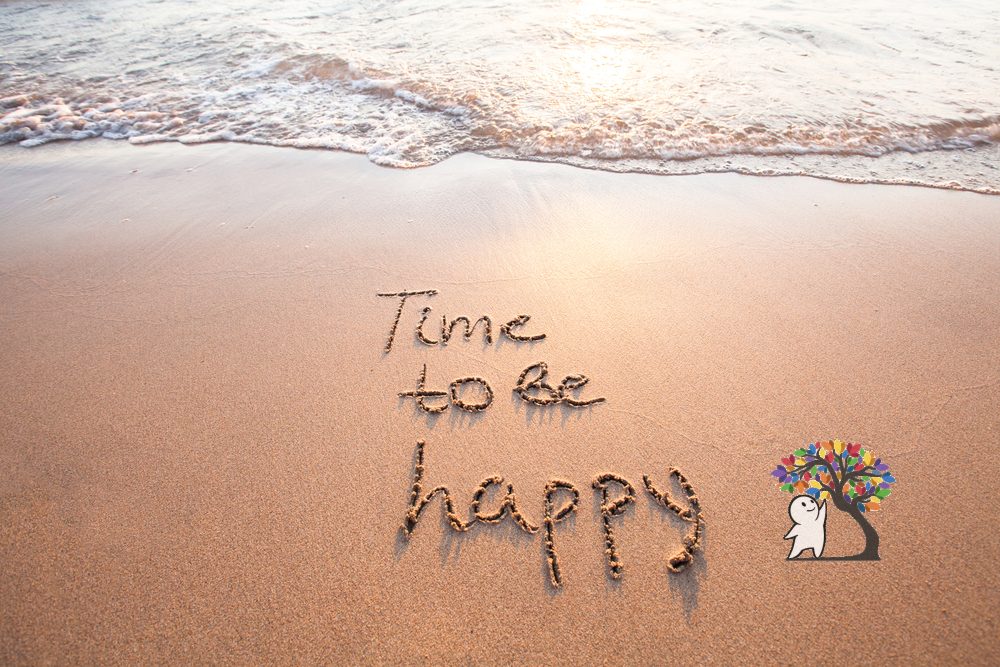How To Get And Preserve Motivation While Following A Desperately Monotonous Daily Routine

If you’re anything like me, then you hate routines with a passion. I hate routines so much I even have a hard time saying the word. It always feels like it’s going to choke me if I say all of it at a go without stopping halfway to breathe.
I can understand you if you go through a similar experience. Routines are such that they make some of us have the seemingly irresistible urge to run ourselves against a brick wall. You feel the need to untether yourself every now and then.
John Carpenter, one of the assignment writers at Brillassignment.co.uk, shared with us his thoughts on routines. He has always been a rebel against routine, doing his best to switch things up now and then in order to make his life more interesting. He has, however, run into something of a monotonous spell over the past few months and he laments the whole experience. “It’s been a slow three months. My life has just been overwhelmed by routines, and I’ve been having a very hard time keeping up. It’s probably been the most boring time of my life” says John, with a dramatic sigh at the end to show just how boring it was for him.
We asked him what it was like and if he may have some advice for us on what to do to avoid the monotony of routine. As we discovered, he had plenty to say. “My current job has gone into a phase where there isn’t much new stuff happening, and I tend to do more of the same every day. I love my job, don’t get me wrong. Working with people is one of the most satisfying experiences you’ll ever have, no matter what your career. But there are those times when the waters get peaceful A river doesn’t wind forever. It doesn’t always offer up new corners that reveal breathtaking landscapes. There are times when you find yourself on a long and peaceful stretch with the same scenery for miles around. It’s not necessarily a bad thing, because it often means stability, but it does have its downsides. Boredom is one of them.” We couldn’t help noticing how profound he was in his description. Someone that poetic definitely wouldn’t love routine!
“For months on end, I was getting up at the same time every day of the week and using the same route to work. I mostly did the same work every single day and ate at the exact same time every day. For some people, that seems like a good idea, but for me it was hell. I still loved my job, though, so I decided that I had to switch things up a little bit and make them more interesting.”
John gave us a plethora of tips that he applied to make things more interesting for himself and that we can also use in our own lives when the monster of monotony rears its ugly head. But before we get to that, let’s take a little detour to understand this phenomenon known as routine.
What is Routine?
At the heart of it, a routine boils down to a specific sequence of events and activities that occur regularly. That’s the most general definition I can come up with off the top of my head. If you think about it, routines are already built into the universe. The sun rises in the east and sets in the west every day. The moon goes through a fairly regular 28-day cycle that starts with a new moon and ends with a full moon. Wildebeests migrate from the Maasai Mara National Park in Kenya to the Serengeti National Park in Tanzania and back about twice a year. They will cross the same river each time, and there will almost always be crocodiles in the river waiting to pick off the young and the weak from the herd to kill and eat. Presidential elections in most liberal democratic countries come at the same frequency of every 4 or 5 years and the Olympics happen every four years.
Does that mean the world is boring? I don’t think so. I know I certainly look forward to my next opportunity to vote for my president. I enjoy the fact that I have that routine privilege. If presidential elections weren’t regular, or even predictable, it would be a sad state of affairs. I love the Olympics, and I love the fact that I know exactly what year, month, and range of dates they’ll occur well in advance. If I had to guess at it, they might not seem as interesting to me.
If I couldn’t be sure the sun will rise tomorrow, or if it will even rise in the east, a lot of my plans would be ruined. I might even be a little paranoid, and I can imagine thoughts might start creeping into my head that the end times are near. It’s definitely a good thing that there is some predictability in lots of things, both human-made and natural.
The laws of nature are also pretty much monotonous. What goes up will always come down, under a given set of conditions, and the same rules that determine what happens when I jump into the air also make it possible for us to fly rockets into space.
But the kind of routine that isn’t very interesting is the kind of routine we follow on a personal level. Granted, not everyone hates routines. Some people see it as a form of stability, and they would rather have a life full of routines than one full of uncertainty, as adventurous as the latter might be. John is the kind that simply doesn’t like routine. They would rather wake up every morning with a little uncertainty about what they might do that day.
Personal routines are often characterized by performing the same procedures and activities in a customary and mechanical way. It’s no wonder that the two most common synonyms for routine are sameness and monotony.
A routine, on a personal level, is what you repeat regularly. It could be many times a day, every day, every week, every month, and so on. What I’ve noticed is that things that are done once a week or longer time intervals aren’t that boring. They can even be refreshing and something to look forward to. It’s the things we do several times a day or every day that threaten to drown us in boredom. The idea here is that if you do something frequently enough, such as many times a day or many times a week, it becomes a part of you and you can even do it without thinking. That’s when it truly begins to feel like a routine.
Why do Routines exist?
Routines aren’t as bad as we might make them sound here. They certainly have become common among most human beings for a reason. Routines have a way of bringing structure to our lives.
Think of our ancestors. They faced a lot of uncertainty every day, and a lot of that uncertainty had to do with their survival. They might not know if a particular patch of the wilderness was more or less dangerous, or if a certain new food was poisonous or edible.
It would be to our ancestors’ benefit if they could find some kind of stability and predictability to their daily lives. They would start to look for fruits and herbs that were proven to be edible, use routes and hang out in areas that were proven to be safe, and slowly begin to learn the weather patterns prevalent in their areas so they could practice reliable agriculture and ensure they always had food. Routine is one of the things that ensured the survival of the human race.
Even today routine plays an important role in our lives. It helps make things a little less complicated. It removes the chaos from our lives and helps us conserve our energy and willpower for the things that really matter.
Routines certainly help us live a conventional life, and not all of them are evil. They are a significant part of being human. In fact, it can be argued that routines are a natural consequence of the human condition. Brushing your teeth regularly is good for your health, and taking a coffee in the morning is something many people around the world just can’t do without. Our own sleep patterns are very regular on a personal level, and many people will have a grumpy day if they don’t get enough sleep.
“The problem comes in when you have too many routines. Too much of anything is bad for you, and you’ll start to feel like you’re buckling under the weight of habit,” says John. I tend to agree with him. Too much routine can stifle creativity and close your mind up. If you don’t give yourself the opportunity to have new experiences, you’ll wallow in the same old worldview.
What can we do about it?
Most of us will agree that too much routine isn’t good for us, and monotony can bring about strong feelings of angst. So what can we do about it? How do we cope with a life of relentless monotony? After all, not all of us are blessed with a 4-hour work week or a job that involves extensive travels. We don’t all work with people or do exciting new things every other day. For the majority of us, our jobs and lives are spelled out to the ‘T.’ The trick isn’t doing a complete overhaul of our lives; it’s finding ways we can spice things up with what we already have. And therein lies the secret to an exciting life.
There are certainly advantages to a life of less routine:
-
Fewer routines will make you more flexible with your life and schedule
-
You won’t feel as bored due to the sameness of your days
-
You increase your bursts of creativity due to your openness to new experiences
-
Your life will generally get more interesting and exciting
So here are the tips John gave us for increasing our motivation when routine besets our daily lives.
-
Get a Hobby

Hobbies are a great way to break the monotony of everyday life. Many of us tend to be stuck in a cycle that involves work, home, and the commute in between. We rarely take some time out for ourselves to pursue the things that make us truly happy. A hobby helps here.
John says there are no hard and fast rules when it comes to hobbies. “Just do whatever you love. Whether it’s playing a musical instrument or cooking. Don’t try to give it the same kind of hard structure that the rest of your life has. The whole point is to let go, not to have another form of routine in your life.”
Hobbies will not only allow you to break away from the monotony of your routines but will also make you feel much better about yourself and improve your emotional well-being. Many of the most successful people in the world, in whatever field, report having a hobby. The one that has always stood for me was Albert Einstein, who loved to play the violin in the evenings. He often reported that some of his most profound thoughts on physics came around when he was lost in the music.
Remember, your hobby doesn’t have to be complicated; it can be something as simple as taking a walk while listening to music. If the area where you live is especially lush with scenery, then you’ll definitely enjoy taking walks. A forest, a river, a park, and a waterfall are all great candidates for places to take a walk and let yourself go. The serenity of these environments might be just what you need to release your creativity and see those problems that have been bugging you at work from a new perspective.
-
Travel

Traveling is often described as a hobby, but it is so important that it needs to be considered on its own. Travelling has many advantages for us, and one of them is that it helps us fight the boredom of routine.
The major excuse for many people is that they either don’t have the time or the money to travel. It’s made out to look so glamorous on postcards, and Instagram feeds that we tend to think it’s a very expensive hobby. But traveling doesn’t have to be so. It can be as simple as going to a nearby destination with a few friends for the weekend. You can split costs and enjoy your time there as a group. When it comes to traveling, there are usually myriad options. You can start with your locale. You’d be surprised at how many travel-worthy places you haven’t visited within a 10-mile radius of your house. All the art galleries, theatres, museums, parks, and restaurants that are nearby that you would enjoy are just waiting to be discovered. Once you feel like you have seen enough of the local area, you can plan for longer excursions to faraway places.
Travelling also has a way of opening our minds. A person who has traveled extensively has come into contact with lots of different cultures, religions, geographies, wildlife, and physical attractions. Your worldview will often be challenged, and you will have to see things from the perspectives of others. As a result, your wisdom will grow, and you will consider fewer and fewer things as completely black and white.
That kind of wisdom can easily be transferred to other areas of your life. Your creativity will see a boost, and you will be able to see things from multiple points of view at the same time. You’ll also be able to handle conflict better because you’ll slowly learn how to analyze both sides of a conflict.
At the very least, being able to see a different place than your home once a week, month, or year will break the monotony in your life and give you something wonderful to look forward to.
-
Read Often

John claims to read about a book a week. He started this practice fairly recently and says it has changed his life drastically. Reading has opened his mind up to lots of different ideas and improved his imagination a great deal.
“I like to think of reading as the cheaper version of traveling. When you read, you get to visit faraway lands and interact with people of all kinds. You’re also exposed to lots of beautiful scenery in the form of pictures and illustrations. You also get to see different things from different perspectives and get lots of new ideas to add to your treasure trove of ideas. That’s basically everything you get when you travel. The only difference here is that you’re getting it as a second or third-hand account and you’re getting it for a few dollars at most.”
The best kind of reading in this context is fantasy and fiction. Those made up worlds will help you forget about your life of routine and give you an escape from monotony. Reading such books is often like taking a portal to another dimension. The rules of the world where you live simply don’t hold and nearly everything is possible. It’s like a more subtle version of Alice in Wonderland.
-
Beware the Screen
Our lives have become pervaded by screens. Whether it’s the large screen of a television or a workstation computer, or the smaller screen of a smartphone or a tablet, screens are about as ubiquitous as clothes nowadays. They help us connect with each other, tell the time, entertain ourselves, and also add some kind of structure to our everyday lives by acting as our personal assistants. But there can be a downside to screens.
For starters, because of the ubiquity of these things, we use them both at work and at home. We use them at work to help us accomplish our daily tasks. They are a permanent feature in our offices. We also use them on the commute to and from work. There they are a form of entertainment that distracts us from the monotony of our commute. We also use them at home, where they’re pretty much a distraction we engage in as we wait to go to sleep and get ready for tomorrow.
The problem is that this ubiquity makes them monotonous. We never seem to fully transition from the workplace environment to the home environment because we carry the symbols of work home. These screens also tend to be used for the same things over and over again. We visit the same social media profiles, engage in the same entertainment, and use them to remind us of the same routines. They have become such a part of us that we don’t have to think about it when we use them. They slowly grow on us and, eventually, become a kind of monotony in themselves. They actually end up contributing to our depression.
To avoid the depressing monotony technology can sometimes bring to your life, it’s a good idea to disconnect from time to time. Put your phone in flight mode and then put it somewhere far so no one and nothing will bug you for a while. Go for a walk or meditate and enjoy your time alone. Self-discovery is just as important as the discovery of the world around you.
-
Maintain a Positive Attitude

It would only be fitting to end this on a positive note. Your attitude is as much a part of your worldview as your actions. Remember when I said that a lot of people actually like routine? Why do you think so? Routine must probably have the same sameness and boringness for them sometimes as it does for us. So what keeps them going? It’s their attitude.
A positive attitude will have you excited in the most boring of circumstances and happy in the saddest of situations. There are simply times in life when routine is the norm, and there’s nothing we can do about it but take things one step at a time. It is during these trying times that our positive attitude will make us sail through and get to the other side. This is especially important when you know you have to stick to a routine in order to accomplish some goal that will make you successful. The road to success isn’t always glamorous. In fact, more often than not, it is a monotonous affair. And yet that monotony pays off in the best of ways if we only brave it to the end. Do everything you can to spice up your life, but don’t avoid routine altogether. Sometimes it can be the reason for your happiness down the line.



Responses